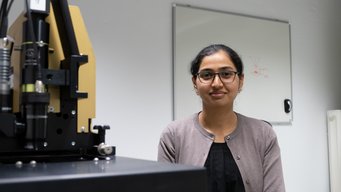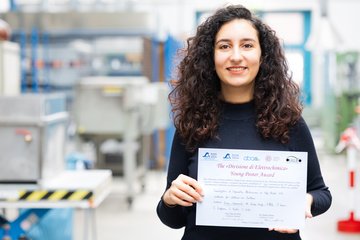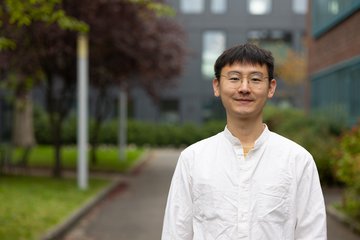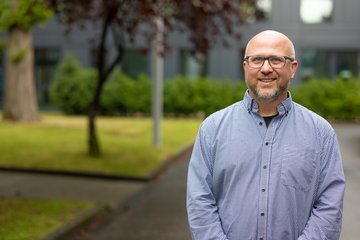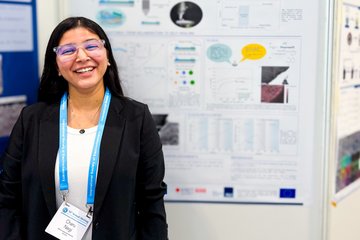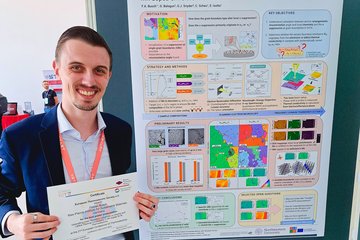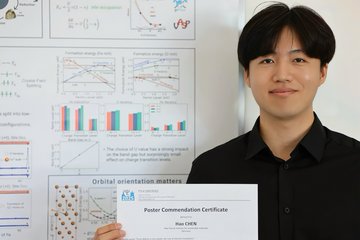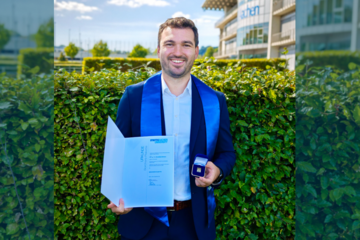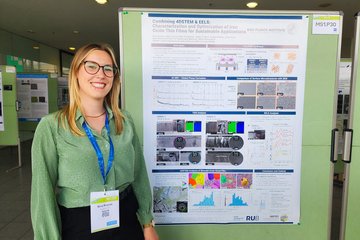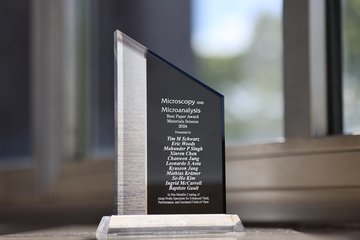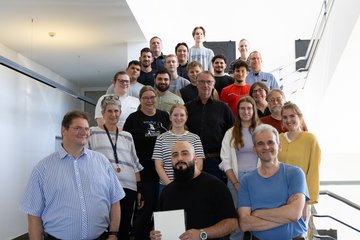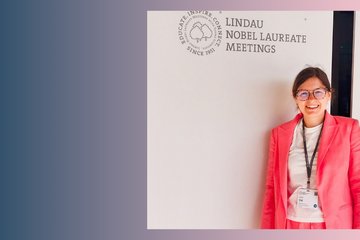From India to Germany with a Humboldt award
Dr. Dipali Sonawane joins the Max-Planck-Institut für Eisenforschung with a scholarship of the Alexander von Humboldt Foundation
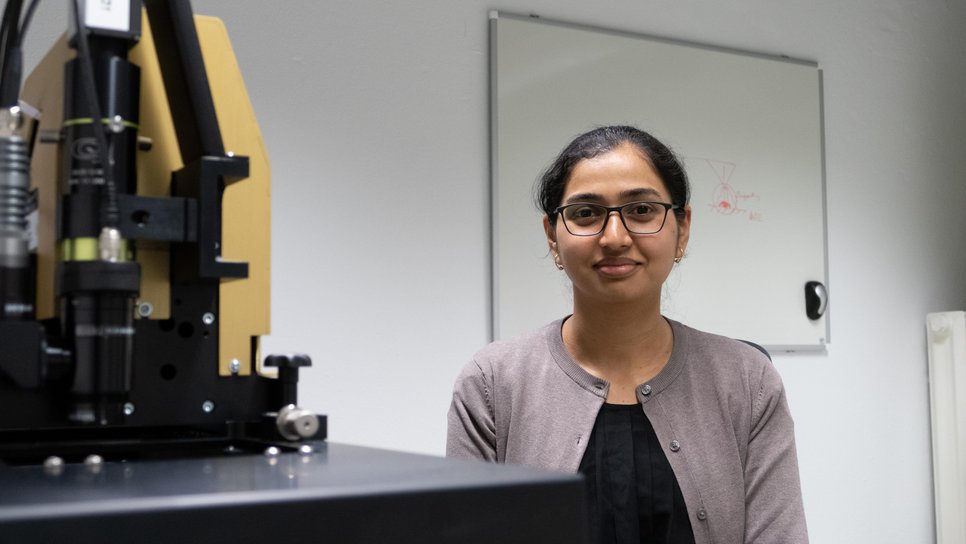
Dr. Dipali Sonawane from the Indian Institute of Science (IISc), Bangalore, just joined the Max-Planck-Institut für Eisenforschung (MPIE) as a postdoctoral fellow being supported by a scholarship of the Alexander von Humboldt Foundation. The scholarship allows her to choose a host institution of her choice in Germany for a stay of two years. Sonawane will focus her research at the MPIE on the thermo-mechanical behaviour of iron aluminides as possible sustainable and cheap alternatives to the high strength steels and superalloys.
To match sustainability criteria with the industrial need for high strength and temperature resistant alloys, new cheaper and, “greener” alloy systems have to be explored. “Green”, thus sustainable in this case, could mean to decrease the amount of rare earth elements, use abundantly available material resources, or increase the recyclability of the used alloys. Iron aluminides fulfil these criteria and could be used as perfect candidates to replace, for example, high strength steel or nickel/cobalt-based superalloys in a wide range of structural applications like turbine components. However, their thermo-mechanical behaviour under high temperatures and high strain rates is not well explored due to missing high throughput mechanical testing possibilities. “I welcome Dipali to my team. She is an excellent researcher with extensive experience in thin film deposition and solid-state dewetting, and will help us in developing a technique to rapidly assess the thermomechanical behaviour of complex alloys.”, says Dr. Rajaprakash Ramachandramoorthy, head of the group “Nanomechanical Instrumentation and Extreme Nanomechanics”, that hosts Sonawane at the MPIE. “I’m extremely happy to be here at the Max Planck institute as my first research stay abroad. Specifically, in this project, I will prepare thin films of iron aluminides with different amounts of aluminium, followed by dewetting them into pristine microparticles. These microparticles will then be subjected to mechanical characterisation under application relevant high temperature and high strain rates.”, explains Sonawane. Subsequently, she will use different electron microscopy techniques to characterise the microstructural evolution of the microparticles post-mechanical stimuli, thus relating the original alloy composition to the temperature- and rate-dependent deformation mechanisms.
The Humboldt Foundation supports academic cooperation between outstanding scientists from abroad and in Germany. It grants these research fellowships to researchers who have excellent qualifications and their own research profile. As the awardee is free to choose any host institution in Germany, the prize counts as a great honour for both the awardee and the host institution.
Author: Yasmin Ahmed Salem
